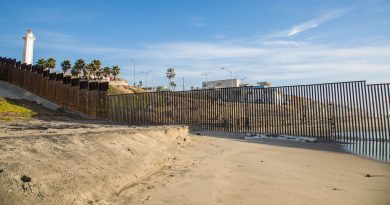Focus on Palestine
By Halimah Elmariah
Staff Writer
The Palestinian Authority has been strenuously trying to garner world support from diplomats and officials for sovereign statehood after its latest U.N. resolution was rejected on December 30, 2014, including a move to join the International Criminal Court, which would enable the Palestinian leadership to pursue Israel for gruesome war crimes.
U.N. Secretary General Ban Ki-moon announced his acceptance of the Palestinian Authority’s request to join the ICC in a statement published on the U.N.’s treaty website, claiming that the Palestinian Authority would be an official member of the ICC starting April 1, 2015.
In immediate retaliation to President Abbas signing of the Rome Statue and 19 other international agreements to enroll in the ICC, Israel froze millions of tax revenue for Palestinians, Al Jazeera reports. Additionally, threats to suspend U.S. aid to the Palestinian Authority emerged from Ileana Ros-Lehtinen, a Florida Republican and the head of the House’s Middle East and North Africa Subcommittee, according to political news website Mondoweiss.
Further, Israeli Prime Minister Benjamin Netanyahu warned that the Palestinians are the ones who should be worried not Israel, writes The Guardian. Netanyahu declared, “It is the Palestinian Authority–which is in a unity government with Hamas, an avowed terrorist organization that, like ISIS, perpetrates war crimes–that needs to be concerned about the international criminal court in The Hague.”
Netanyahu’s remarks come at a time when Israel is under great scrutiny after the July 2014 assault on Gaza, labeled Operation Protective Edge, which resulted in the death of over 2,200 Palestinians, many of whom were civilians, and the death of 70 Israelis, most of them soldiers. Amnesty International conducted an investigation after the 50-day assault and concluded that Israel committed war crimes towards the end of Operation Protective Edge.
European countries have demonstrated more support for Palestinian statehood with Sweden becoming the first Western E.U. country to recognize Palestine in October. Following Sweden’s recognition of Palestine, French and Irish parliaments called on their governments to acknowledge an independent Palestinian state alongside Israel within its 1967 borders, reflecting changing public opinion across Europe.
Palestinian Authority President Mahmoud Abbas filed to join the ICC a day after the rejection of Jordanian-backed U.N. resolution, which requested the end of the Israeli occupation within a 3-year time frame and called for an end to increasing Israeli Jewish settlements on occupied territory. The resolution required nine “yes” votes to be implemented; it only received eight, and five abstentions. Australia and the U.S.,
which maintains that an independent Palestinian state should emerge only through negotiations, voted “no.”
Nigeria, which was expected to vote “yes,” abstained from voting, after the Israeli Prime Minister Benjamin Netanyahu and U.S. Secretary of State John Kerry lobbied the Nigerian President Goodluck Jonathan by calling him hours before he was due to vote, demanding that he reject the resolution, The Guardian reports.
Palestine was granted non-member observer State status at the United Nations on November 12, 2012.



